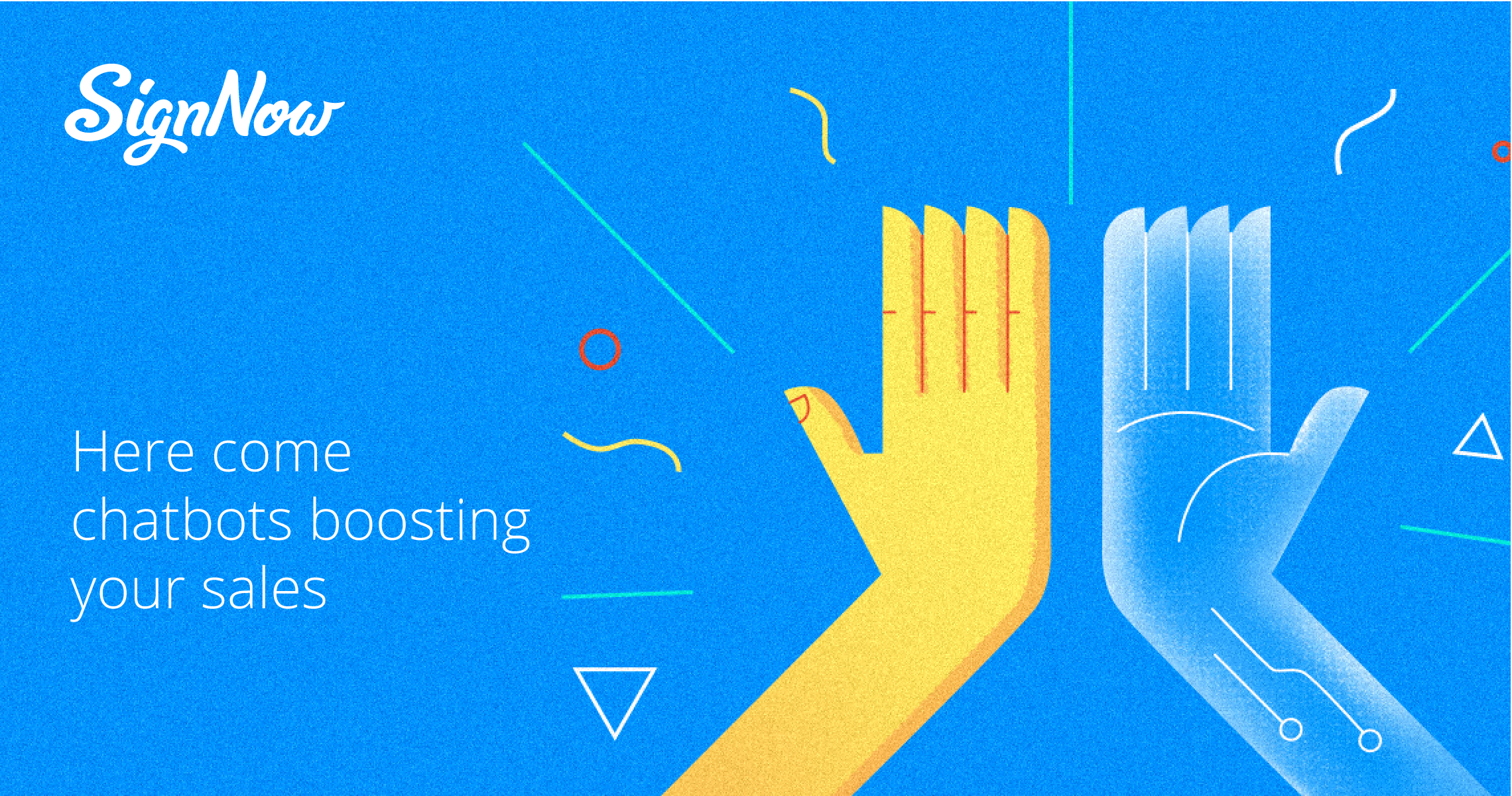
Twitter, YouTube, your Facebook news feed and even late night TV shows – all are stuffed with scary stories about robots stealing our jobs in the near future.
Automation and robotics are indeed gaining momentum in many industrial sectors and professions. However, they are still very far from absolute dominance in the workplace. If you are not working in mass production, your immediate question should be: So what? How exactly could these robots even relate to my business? Well, you probably are already using the kind services of Siri and/or Alexa. So why not let their colleagues into your business operations?
Let’s take chatbots, for example, since they are obviously becoming so popular today. According to the Oxford Living Dictionaries, chatbot is a “computer program designed to simulate conversation with human users over the Internet”. At first glance, seems kind of boring, right? But let’s not rush to conclusions so fast. Even dating sites already have chatbots. So, maybe you could at least give it a try too. When and why your business could benefit from having a chatbot?
Selling to impulse buyers
A spontaneous purchase can be driven by emotions, curiosity or simply a 24/7 attachment to a smartphone.
Let’s say you are in the business of delivering flowers and chocolate, or selling T-shirts with funny quotes – this could be your chance to boost sales tremendously. Try using a simple chatbot on Facebook or choose among many other free of charge chatbot construction sites. Any of these bots are capable of providing your clients with detailed descriptions of your product. This includes variety, price, size, color and delivery time. A chatbot can even ask for contact details. All you have to do is to make sure the chatbot can automatically be redirected to the page for the e-signing of a purchase or to a payment request form (some chatbots can also provide the option of connecting to a PayPal account).
Marketing to millennials
Chatbots are the hype right now. It’s as simple as that. Millennials love using what’s new and trendy. Chances are, that many potential clients would want to try out a chatbot just out of pure curiosity. Even if only one in fifty visitors stays for a follow-up purchase order – bingo! You got a new client spending neither time, nor efforts on this new deal.
Mastering after-sales support
Chatbot can be an amazing tool in cases when your clients start flooding you with questions. The answers might be quick and easy but the frequency of requests and their overall volume can overwhelm you and your staff. This is especially relevant for retailers (clothes, accessories, stationary, furniture and decor etc.), or travel agencies selling any type of tickets (from airplanes to local gigs). Chatbots can also work well for insurance agencies or doctors’ offices while scheduling appointments.
Solving HR problems
There are several reasons why building a chatbot is better than hiring extra staff:
- it is available 24/7, no vacation, no holidays, no sick leaves
- it is emotionally neutral (never in a bad mood, always polite and always ready to answer the same questions again and again).
- no more “hold the line, please”, which means there are no pauses in communication, thus, customers’ problems are solved faster.
And guess what? You can get all these competitive advantages without spending a dime. Most of the chatbot construction sites are free of charge and open code.
Hunting for client data
Considering the popularity of chatbots and their 24/7 availability, this may be the fastest way to collect client data. A chatbot can easily collect detailed information on the most frequent requests, on the gaps in your advertisement and promotion campaigns, on client preferences and problems they might be having while using your product. Remember, there is no such thing as negative feedback, as long as you collect information accurately and react accordingly.
In any of these cases, a chatbot is a contribution, but not a substitution. There is no way – at least for now – for a chatbot to be able to substitute an account manager, marketer, or data analyst. But it can help people working in those professions, as well as any business, by saving time and money.

